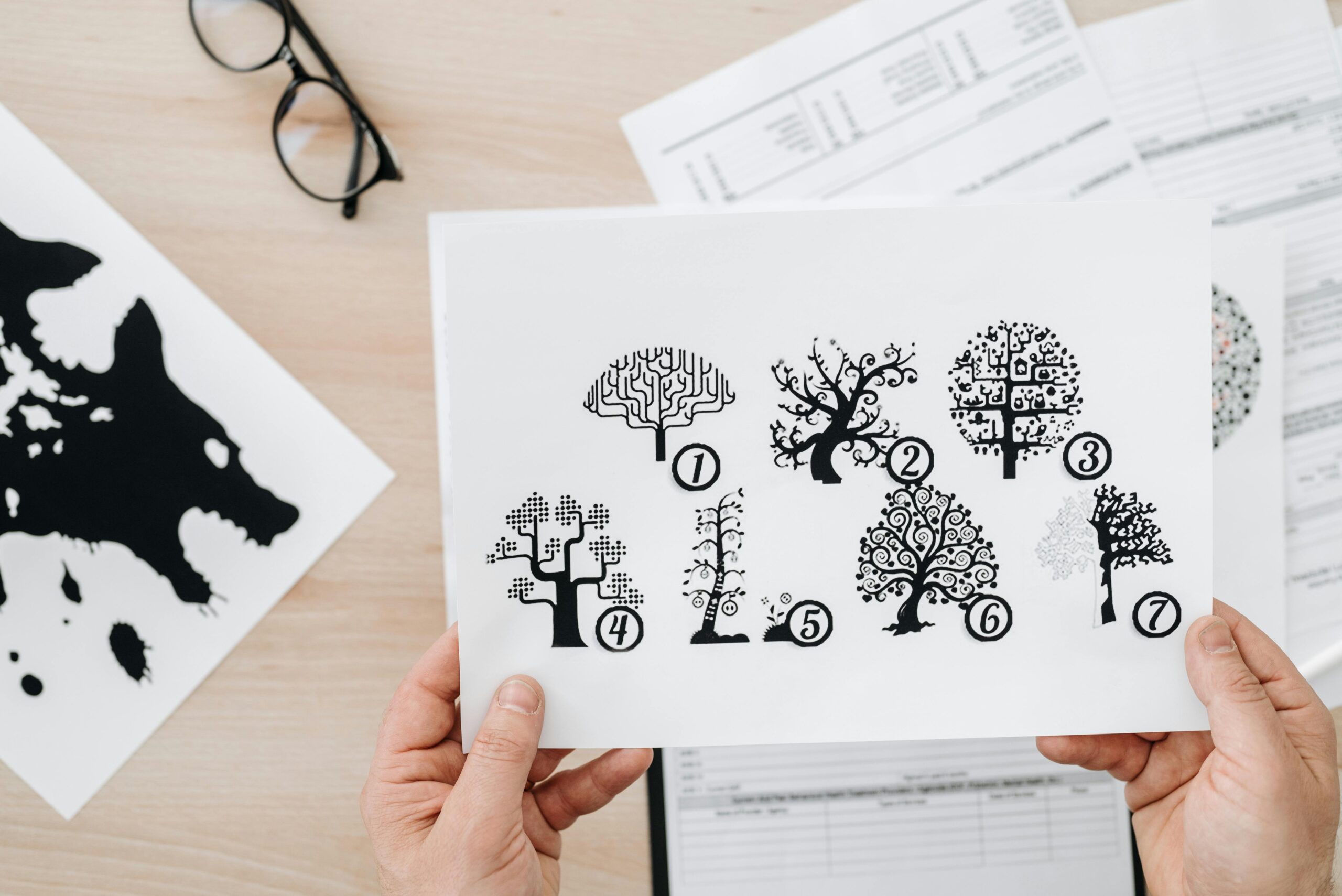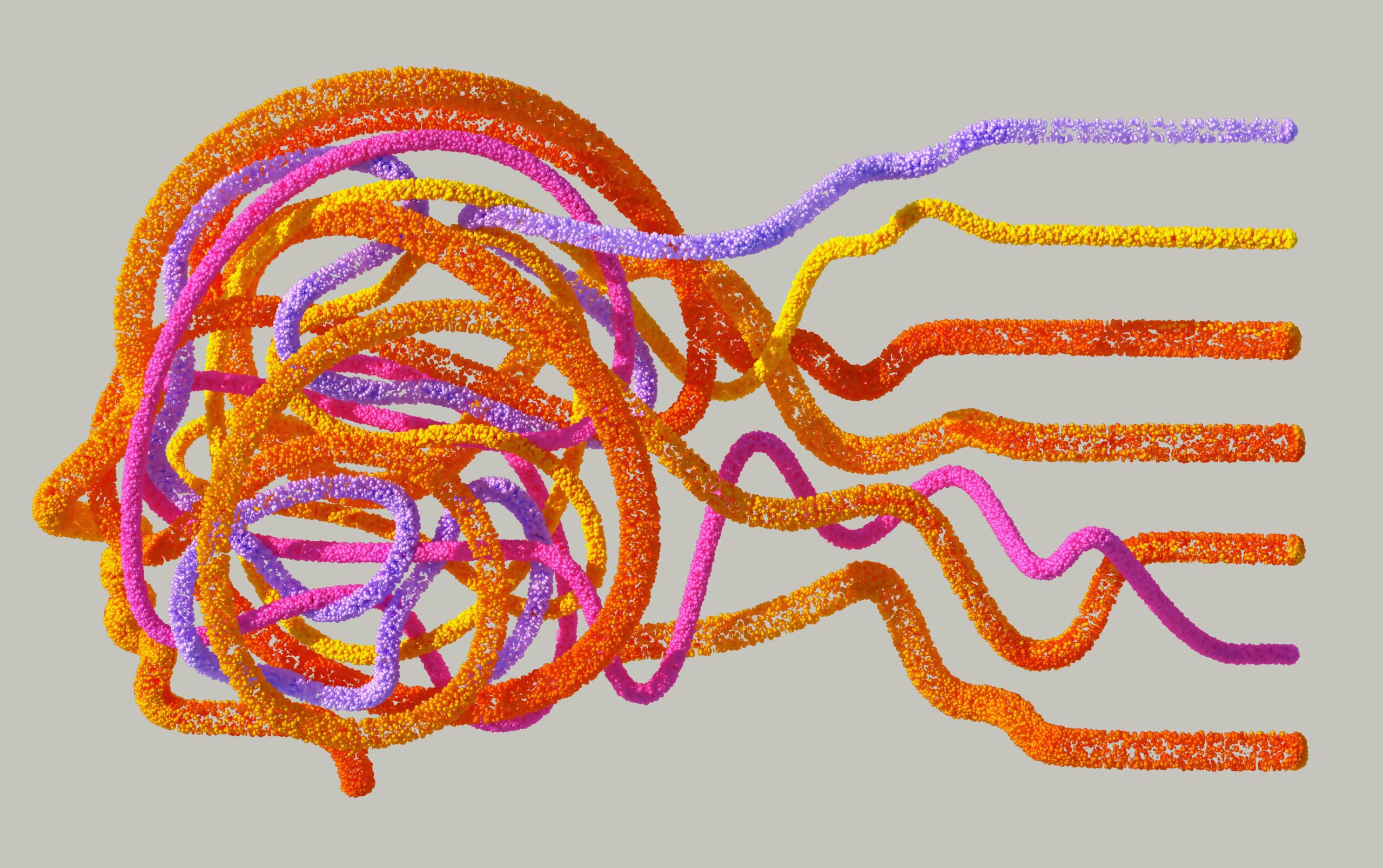Cognitive impairment affects millions worldwide, challenging families, caregivers, and healthcare professionals to identify symptoms early and implement effective management strategies.
Understanding the mind’s complexities requires sophisticated assessment tools that can accurately detect cognitive decline, from mild symptoms to severe dementia. Modern healthcare has evolved to offer diverse evaluation methods, ranging from traditional paper-based tests to innovative digital platforms that provide comprehensive insights into brain function and cognitive health.
🧠 Understanding Cognitive Impairment and Its Impact
Cognitive impairment represents a spectrum of conditions affecting memory, thinking, judgment, and reasoning abilities. These challenges can manifest in various forms, from age-related memory lapses to more serious conditions like Alzheimer’s disease, vascular dementia, or traumatic brain injuries. Recognizing the signs early provides critical opportunities for intervention and management.
The prevalence of cognitive decline continues rising globally as populations age. Current estimates suggest that over 55 million people worldwide live with dementia, with numbers projected to increase significantly in coming decades. This reality underscores the vital importance of accessible, reliable assessment tools that can identify cognitive changes before they become debilitating.
Why Early Detection Matters More Than Ever
Early identification of cognitive impairment offers numerous advantages that can significantly improve quality of life for affected individuals and their families. When cognitive changes are detected promptly, healthcare providers can implement interventions that may slow progression, address reversible causes, and help patients plan for future care needs.
Research consistently demonstrates that early intervention can preserve independence longer, reduce caregiver burden, and improve overall outcomes. Additionally, early detection allows individuals to participate in clinical trials, access support services, and make important decisions about their care while they still have capacity.
The Window of Opportunity
The period between normal cognitive function and significant impairment represents a crucial window for intervention. During this time, known as mild cognitive impairment (MCI), individuals experience noticeable cognitive changes that don’t significantly interfere with daily activities. Approximately 15-20% of people over 65 have MCI, and many will progress to dementia within several years.
Identifying individuals at this stage enables targeted treatments, lifestyle modifications, and monitoring strategies that can potentially delay or prevent further decline. Assessment tools designed to detect subtle changes play an essential role in capturing these early warning signs.
Traditional Screening Instruments That Remain Relevant 📋
Despite technological advances, several traditional paper-based assessment tools continue serving as gold standards in cognitive evaluation. These time-tested instruments provide reliable baseline measurements and remain widely used across healthcare settings worldwide.
The Mini-Mental State Examination (MMSE)
Developed in 1975, the MMSE remains one of the most widely recognized cognitive screening tools globally. This 30-point questionnaire assesses various cognitive domains including orientation, attention, memory, language, and visual-spatial skills. Healthcare providers can administer the test in approximately 10 minutes, making it practical for busy clinical settings.
The MMSE scores range from 0 to 30, with scores below 24 typically indicating cognitive impairment. While the test has limitations—including education and language biases—its widespread use allows for standardized comparison across populations and settings.
Montreal Cognitive Assessment (MoCA)
The MoCA was designed to address some limitations of the MMSE, particularly in detecting mild cognitive impairment. This assessment evaluates attention, concentration, executive functions, memory, language, visuospatial skills, conceptual thinking, calculations, and orientation.
Many clinicians prefer the MoCA for its increased sensitivity to subtle cognitive changes, making it especially valuable for early detection. The test takes approximately 10-15 minutes to administer and is available in numerous languages, enhancing its accessibility across diverse populations.
Clock Drawing Test
This deceptively simple assessment asks individuals to draw a clock face with hands pointing to a specific time. The Clock Drawing Test evaluates multiple cognitive domains simultaneously, including executive function, visuospatial abilities, and comprehension. Its simplicity and rapid administration make it useful for initial screening, though it’s often combined with other assessments for comprehensive evaluation.
Advanced Neuropsychological Testing Batteries 🎯
When initial screening suggests cognitive impairment, comprehensive neuropsychological testing provides detailed assessment across multiple cognitive domains. These extensive evaluations typically require several hours and specialized training to administer and interpret.
Comprehensive Cognitive Assessment Approaches
Neuropsychological batteries examine specific cognitive functions in depth, including memory systems, attention types, language processing, executive functions, and processing speed. These detailed evaluations help differentiate between various types of dementia, identify specific cognitive strengths and weaknesses, and establish baselines for monitoring progression.
Common comprehensive batteries include the Wechsler Adult Intelligence Scale (WAIS), the Cambridge Neuropsychological Test Automated Battery (CANTAB), and the Repeatable Battery for the Assessment of Neuropsychological Status (RBANS). Each offers unique advantages depending on the clinical context and questions being addressed.
Digital Revolution: Technology-Based Assessment Tools 💻
The digital age has transformed cognitive assessment, introducing computerized and mobile-based tools that offer unprecedented accessibility, standardization, and data collection capabilities. These technological solutions complement traditional methods while addressing some of their limitations.
Computer-Adaptive Testing Platforms
Modern digital platforms utilize adaptive algorithms that adjust question difficulty based on user responses, providing more precise measurements while reducing testing time. These systems can administer assessments remotely, track performance over time, and generate detailed reports automatically.
Digital platforms offer particular advantages for longitudinal monitoring, allowing healthcare providers to track subtle changes in cognitive function over months or years. The consistency of digital administration eliminates variability that can occur with human-administered tests.
Mobile Applications for Cognitive Screening
Smartphone applications have democratized access to cognitive screening tools, enabling individuals to monitor their cognitive health independently or in collaboration with healthcare providers. These apps range from simple memory games to validated clinical assessments adapted for mobile platforms.
Some applications incorporate gamification elements to increase engagement while collecting meaningful cognitive data. Others provide evidence-based assessments that correlate with traditional paper tests, offering convenient alternatives for preliminary screening or regular monitoring.
Virtual Reality Assessment Environments
Emerging virtual reality (VR) technologies create immersive assessment environments that can evaluate cognitive functions in contexts more similar to real-world activities. VR assessments can measure navigation abilities, spatial memory, and complex problem-solving in ways traditional tests cannot replicate.
These innovative approaches show particular promise for assessing functional abilities and predicting real-world performance, though they require specialized equipment and are not yet widely available in standard clinical settings.
Biomarker-Based Detection Methods 🔬
Beyond behavioral testing, biological markers are increasingly important in cognitive impairment detection and diagnosis. These objective measures provide insights into underlying brain pathology that behavioral tests alone cannot reveal.
Neuroimaging Techniques
Brain imaging technologies including MRI, CT scans, and PET scans help identify structural changes, blood flow abnormalities, and protein accumulations associated with cognitive decline. Advanced imaging can detect brain changes years before symptoms appear, offering opportunities for extremely early intervention.
Functional MRI (fMRI) reveals brain activity patterns during cognitive tasks, identifying dysfunction in specific neural networks. Amyloid and tau PET imaging can visualize protein deposits characteristic of Alzheimer’s disease, enabling more precise diagnosis and treatment planning.
Cerebrospinal Fluid and Blood Tests
Biomarker analysis of cerebrospinal fluid can detect proteins associated with Alzheimer’s disease and other dementias. While requiring lumbar puncture, these tests provide valuable diagnostic information, particularly for ambiguous cases.
Recent developments in blood-based biomarkers offer promise for less invasive screening. Blood tests detecting specific proteins or genetic markers may eventually enable routine cognitive health screening during regular medical checkups, dramatically expanding early detection capabilities.
Functional Assessment: Measuring Real-World Impact 🏠
Understanding how cognitive changes affect daily functioning is crucial for diagnosis, care planning, and determining appropriate support levels. Functional assessments complement cognitive tests by evaluating practical abilities and independence.
Activities of Daily Living Evaluations
Functional assessment tools measure abilities to perform basic self-care tasks (bathing, dressing, eating) and instrumental activities (managing finances, shopping, cooking, managing medications). Decline in these areas often signals progression from mild cognitive impairment to dementia.
Clinicians typically gather functional information through structured interviews with patients and knowledgeable informants who can provide observations about day-to-day performance. Questionnaires like the Functional Activities Questionnaire (FAQ) and the Lawton Instrumental Activities of Daily Living Scale provide standardized methods for documenting functional abilities.
Performance-Based Functional Testing
Some assessments directly observe individuals performing simulated daily tasks, providing objective measurement of functional capabilities. These performance-based evaluations can reveal difficulties not apparent in self-reported questionnaires and help distinguish between what individuals can do versus what they actually do in daily life.
Informant-Based Assessment Approaches 👥
Information from family members, caregivers, and others who know the individual well provides invaluable perspectives on cognitive and behavioral changes. These observations complement direct testing and often reveal difficulties not apparent in brief clinical encounters.
Structured Informant Questionnaires
Standardized instruments like the Informant Questionnaire on Cognitive Decline in the Elderly (IQCODE) ask informants to rate changes in cognitive abilities compared to previous functioning. These tools are particularly valuable when individuals have limited education, language barriers, or lack insight into their difficulties.
Informant reports can detect subtle changes in personality, behavior, and social functioning that objective cognitive tests may miss. They provide context about how cognitive changes manifest in real-world situations and their impact on relationships and daily routines.
Choosing the Right Assessment Tool for Specific Contexts ✅
No single assessment tool serves all purposes optimally. Selecting appropriate instruments depends on numerous factors including the assessment goal, setting, population characteristics, and available resources.
Screening Versus Diagnostic Assessment
Brief screening tools efficiently identify individuals who warrant further evaluation but typically cannot provide specific diagnoses. Comprehensive diagnostic assessments require more time and expertise but yield detailed information necessary for treatment planning and prognosis.
Primary care settings often utilize quick screening instruments to identify potential concerns, referring positive cases for specialized evaluation. Memory clinics and neuropsychology practices employ comprehensive batteries to establish precise diagnoses and document cognitive profiles.
Population-Specific Considerations
Assessment tools must be appropriate for the individual’s age, education level, cultural background, and language. Many traditional tests show bias favoring educated, English-speaking populations, potentially misclassifying individuals from different backgrounds.
Culturally adapted and translated versions of popular assessments improve accuracy across diverse populations. Some assessment approaches minimize language and cultural loading, relying more on visual or performance-based tasks that translate better across populations.
Implementing Regular Cognitive Monitoring Programs 📊
Single assessments provide snapshots of cognitive function at specific moments, but understanding cognitive health trajectories requires repeated measurement over time. Regular monitoring enables early detection of decline and evaluation of intervention effectiveness.
Establishing Baseline Measurements
Ideally, individuals would establish cognitive baselines during middle age when function is typically optimal. These baselines provide personalized reference points for detecting future changes, as considerable normal variation exists between individuals.
Healthcare systems increasingly recognize the value of incorporating cognitive screening into routine wellness visits, particularly for individuals over 65 or those with risk factors for cognitive decline. Annual or biennial screening can identify changes requiring further investigation.
Serial Assessment Strategies
Repeated testing requires careful attention to practice effects—improvement due to familiarity with test materials rather than genuine cognitive enhancement. Many digital platforms and neuropsychological batteries include alternate forms or adaptive algorithms that minimize practice effects while maintaining measurement validity.
Tracking cognitive performance over time enables identification of subtle decline that might not be apparent from single assessments. Decline trajectories help differentiate normal aging from pathological processes and inform prognosis and planning.
Integrating Multiple Data Sources for Comprehensive Understanding 🔍
The most accurate cognitive assessment integrates information from multiple sources and methods. Combining cognitive testing, functional evaluation, informant reports, medical history, and biomarkers provides comprehensive understanding that guides appropriate diagnosis and management.
Multidisciplinary Team Approaches
Complex cases often benefit from evaluation by interdisciplinary teams including neurologists, neuropsychologists, geriatricians, social workers, and other specialists. Each professional contributes unique expertise, ensuring thorough evaluation of medical, cognitive, psychological, and social factors contributing to cognitive difficulties.
Team-based approaches facilitate comprehensive care planning that addresses multiple needs simultaneously, from medical management to caregiver support to community resources. These coordinated efforts typically produce better outcomes than fragmented care.
Moving Forward: The Future of Cognitive Assessment 🚀
Assessment technologies continue evolving rapidly, with artificial intelligence, passive monitoring systems, and sophisticated biomarkers promising to transform how we detect and track cognitive health. Machine learning algorithms can identify subtle patterns in cognitive data that predict future decline, potentially enabling intervention years earlier than currently possible.
Passive monitoring technologies embedded in smartphones, wearables, and smart homes can track cognitive indicators continuously through daily activities—typing speed, navigation patterns, conversation characteristics, sleep quality, and activity levels. These digital phenotypes may detect cognitive changes before individuals or clinicians recognize problems.
As assessment tools become more accessible, accurate, and comprehensive, the vision of routine cognitive health monitoring throughout the lifespan becomes increasingly achievable. This preventive approach parallels how we currently monitor cardiovascular or metabolic health, potentially transforming cognitive impairment from an inevitable aging consequence to a manageable condition with early intervention.

Empowering Action Through Knowledge and Tools 💪
Understanding available assessment tools represents the first step toward proactive cognitive health management. Whether you’re a healthcare professional seeking to enhance screening practices, a family member concerned about a loved one, or an individual interested in monitoring your own cognitive wellness, numerous validated tools can provide valuable insights.
The key lies not in finding the “perfect” assessment but in utilizing appropriate tools systematically, interpreting results thoughtfully within broader contexts, and acting on findings with evidence-based interventions. Cognitive health deserves the same attention we give to physical health, with regular monitoring, risk factor management, and prompt intervention when problems emerge.
By embracing comprehensive assessment approaches and emerging technologies, we can unlock minds affected by cognitive impairment, providing individuals and families with knowledge, hope, and practical strategies for navigating cognitive challenges successfully. The tools exist—the imperative now is to ensure their effective, equitable implementation across all populations and settings.
Toni Santos is a cognitive storyteller and cultural researcher dedicated to exploring how memory, ritual, and neural imagination shape human experience. Through the lens of neuroscience and symbolic history, Toni investigates how thought patterns, ancestral practices, and sensory knowledge reveal the mind’s creative evolution. Fascinated by the parallels between ancient rituals and modern neural science, Toni’s work bridges data and myth, exploring how the human brain encodes meaning, emotion, and transformation. His approach connects cognitive research with philosophy, anthropology, and narrative art. Combining neuroaesthetics, ethical reflection, and cultural storytelling, he studies how creativity and cognition intertwine — and how science and spirituality often meet within the same human impulse to understand and transcend. His work is a tribute to: The intricate relationship between consciousness and culture The dialogue between ancient wisdom and neural science The enduring pursuit of meaning within the human mind Whether you are drawn to neuroscience, philosophy, or the poetic architecture of thought, Toni invites you to explore the landscapes of the mind — where knowledge, memory, and imagination converge.




